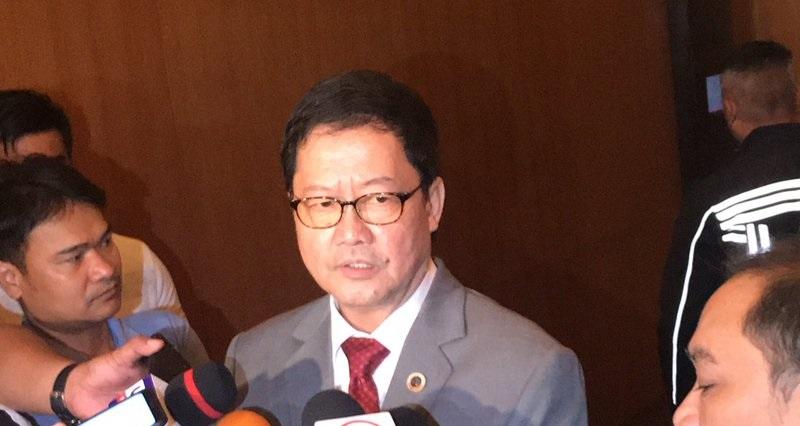No law invalidates publication of statute on online Official Gazette —Guevarra

There is no law or doctrinal court decision that makes the publication of a statute in the online Official Gazette "invalid," Justice Secretary Menardo Guevarra said Sunday.
Guevarra made the remark in response to the statement of former Supreme Court spokesperson Theodore Te questioning the effectivity of the Anti-Terrorism Law of 2020, which was deemed effective on Saturday.
In a tweet, Te pointed out that there is no law stating that the online Official Gazette could substitute for publication in newspapers of general circulation under Article 2 of the Civil Code.
There is no law that says that the online OG substitutes for the printed OG under Art. 2 of the Civil Code. Publication in the actual OG was on July 6, TF effectivity is July 22, not July 18. See Garcellano v HoR (Dec. 23, 2008), internet is not the medium for publishing laws. https://t.co/eSb2ECiujl
— Theodore Te (@TedTe) July 17, 2020
According to Section 58 of the law, the new anti-terror law will take effect "15 days after its complete publication in the Official Gazette or in at least two newspapers of general circulation."
The new law was published on the online Official Gazette on July 3, but Te said its publication on the actual Official Gazette was on July 6, hence it should take effect on July 22, according to him, and not on July 18.
He stated that in the case of Garcellano v. the House of Representatives, "[the] Internet is not the medium for publishing laws."
Guevarra, however, told GMA News Online in a text message that "neither is there a law nor any doctrinal court decision that expressly states that online publication of a statute by the Official Gazette is invalid."
What is important is the "fact" of publication by the official publisher of the government, serving constructive notice to the public that a law has been duly enacted, he said.
"Laws and other official issuances in the recent past have all been published online at the first instance in the Official Gazette," he added.
For his part, presidential spokesperson Harry Roque told GMA News Online that Malacañang will defer to the opinion of the Department of Justice with regard to the date of effectivity of the Anti-Terrorism Law.
President Rodrigo Duterte signed the controversial Anti-Terrorism Law on July 3 despite objections from various groups, including the United Nations human rights body and the Bangsamoro Transition Authority.
At least nine petitions have already been filed to challenge the law before the Supreme Court, questioning the vagueness of the definition of terrorism under the statute as well as its supposed infringement of several constitutionally-granted rights.
Earlier in the day, a group of 44 petitioners represented by the National Union of Peoples' Lawyers also urged the Supreme Court to immediately issue a status quo ante order or a temporary restraining order, or a writ of preliminary injunction to stop the implementation of several provisions of the law, and to declare it unconstitutional altogether.
Malacañang had said it will accept whatever decision the Supreme Court may arrive at regarding the petitions against the law. —LBG/KG, GMA News



